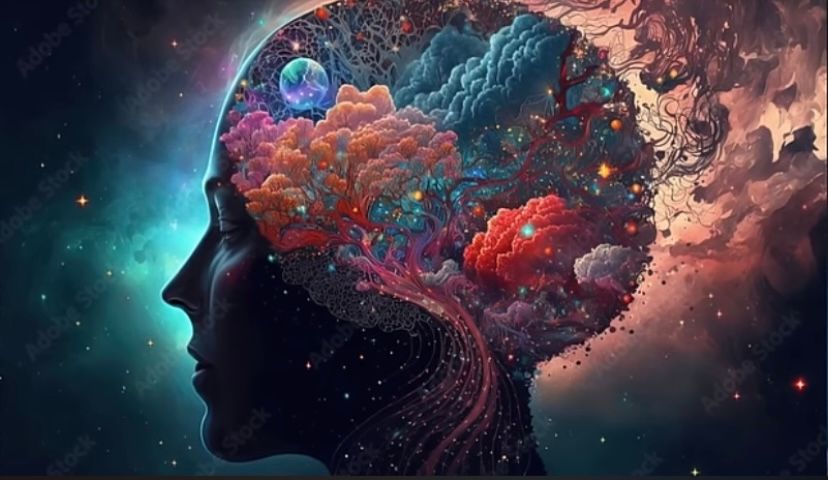Psychology Services for Mental Traumas
What are Psychology Services for Mental Traumas?
Psychological services for mental traumas are designed to help individuals recover from the emotional and psychological effects of traumatic experiences.
Trauma can result from various events such as accidents, violence, abuse, natural disasters, or witnessing distressing events. These services aim to provide therapeutic support, coping strategies, and interventions to help individuals process trauma, reduce symptoms, and restore mental well-being.

Psychological Services for Mental Trauma
Trauma-Focused Therapy
Trauma-focused therapy is a form of psychotherapy specifically designed to help individuals cope with the emotional and psychological effects of trauma. These therapies are structured to address trauma's underlying causes, emotional responses, and the negative beliefs or behaviours that develop after a traumatic experience.
Some of the most common trauma-focused therapies include:
- Trauma-Focused Cognitive Behavioral Therapy (TF-CBT): This is one of the most widely used therapies for trauma. TF-CBT combines cognitive behavioural techniques with trauma-sensitive strategies to help individuals process their trauma and change negative thought patterns. It involves education about trauma, relaxation techniques, cognitive restructuring, and exposure to trauma memories in a controlled and safe manner.
- Eye Movement Desensitization and Reprocessing (EMDR): EMDR is a therapy specifically designed to help individuals process traumatic memories and reduce their distress. It involves the individual recalling traumatic experiences while the therapist guides them through bilateral stimulation, such as moving their eyes back and forth. This process helps to "reprocess" the traumatic memory, allowing the individual to recall it without intense emotional reactions.
- Prolonged Exposure Therapy (PE): PE is another form of trauma-focused therapy that involves repeated exposure to trauma memories or stimuli associated with the traumatic event in a controlled way. Over time, this can help reduce the emotional response to the trauma and allow the person to confront their fears.
Cognitive Behavioral Therapy (CBT)
Cognitive Behavioral Therapy (CBT) is a common therapeutic approach used to treat the psychological symptoms of trauma, such as anxiety, depression, and post-traumatic stress disorder (PTSD). CBT helps individuals identify and change harmful thought patterns and behaviours related to their trauma.
The therapy focuses on challenging unhelpful beliefs and developing healthier ways to cope with trauma-related emotions and memories. CBT is effective for both recent and long-standing trauma, and it can be tailored to the individual’s specific needs.
Post-Traumatic Stress Disorder (PTSD) Treatment
PTSD is a condition that can develop after a person experiences or witnesses a traumatic event.
Specialised PTSD treatment programs are designed to help individuals manage the symptoms of PTSD, which include flashbacks, nightmares, hypervigilance, and avoidance of trauma-related stimuli.
PTSD treatment can include:
- CBT or TF-CBT
- EMDR
- Group Therapy: Group therapy for PTSD allows individuals with similar trauma experiences to come together and support one another. Sharing experiences in a safe, structured environment can help individuals feel less isolated and learn new coping strategies.
- Medications: Antidepressants, anti-anxiety medications, or other psychiatric medications may be prescribed alongside therapy to manage PTSD symptoms.
Counselling and Supportive Therapy
Counselling is a key service for individuals dealing with the emotional aftermath of trauma. Trauma counselling provides a safe space for individuals to talk about their experiences, feelings, and reactions. Through supportive therapy, individuals can gain validation for their emotions, learn coping mechanisms, and receive guidance on how to move forward.
This service can be particularly helpful for those who have experienced recent trauma and need immediate emotional support to stabilise their mental well-being.
Somatic Experiencing
Somatic Experiencing is a body-focused approach to trauma treatment that emphasises the connection between the mind and body. Trauma is often stored in the body, manifesting as physical tension, pain, or other symptoms.
Somatic Experiencing helps individuals release this stored trauma by focusing on physical sensations and working through bodily responses to trauma. The therapist helps the individual process trauma-related sensations without overwhelming the nervous system.
Mindfulness-Based Therapies
Mindfulness-based therapies, such as Mindfulness-Based Stress Reduction (MBSR) and Mindfulness-Based Cognitive Therapy (MBCT), are useful for individuals recovering from trauma.
These therapies teach individuals how to stay present and mindful, rather than being overwhelmed by traumatic memories or stress responses. Mindfulness techniques, such as meditation and deep breathing, help calm the mind, reduce stress, and improve emotional regulation.
Group Therapy for Trauma
Group therapy can be a highly effective way to treat trauma, as it offers individuals a supportive community where they can share their experiences and learn from others who have faced similar challenges. Group therapy helps individuals feel less isolated and provides opportunities for emotional healing and growth.
Some specific types of trauma-related group therapies include:
- Support groups for survivors of abuse or violence.
- Groups for veterans or those who have experienced combat-related trauma.
- Groups for survivors of accidents or natural disasters.
In group therapy, individuals learn coping skills, receive support, and hear stories of recovery that can inspire hope.
Psychiatric Support and Medication Management
For some individuals, the psychological effects of trauma can be severe enough to require psychiatric intervention. Psychiatrists or other medical professionals may prescribe medications to help manage trauma-related conditions such as PTSD, anxiety, or depression. Common medications include:
- Antidepressants: To manage symptoms of depression or anxiety.
- Anti-anxiety medications: To reduce intense fear or worry.
- Sleep aids: To help individuals who suffer from insomnia or nightmares related to trauma.
Medication is often used in conjunction with psychotherapy for a more comprehensive treatment approach.
Crisis Intervention Services
In the aftermath of a traumatic event, individuals may require immediate psychological support to stabilise their emotions and mental health. Crisis intervention services are designed to provide short-term support and assistance to individuals in the immediate aftermath of a trauma. These services often include:
- Hotlines: Where individuals can speak with trained counsellors or therapists.
- On-site crisis counselling: For individuals involved in disasters, accidents, or other traumatic incidents.
- Emergency psychological care: In cases where trauma leads to a mental health crisis, individuals may need emergency psychological care to prevent self-harm or manage overwhelming emotions.
Family Therapy
Trauma affects not only individuals but often entire families. Family therapy can help families process the impact of trauma together, improve communication, and develop coping strategies. This service is especially important when trauma involves family violence, abuse, or the loss of a family member.
Family members may struggle with how to support the trauma survivor, or they may experience their own trauma-related challenges. Family therapy addresses these issues and helps strengthen the family's resilience.
Specialised Trauma Treatment Programs
There are specialised trauma treatment programs designed to meet the needs of specific groups, such as:
- Veterans: Veterans may experience trauma from combat or other military experiences. Specialised programs for veterans provide tailored therapy to help with PTSD, reintegration into civilian life, and other mental health issues.
- Victims of Crime: Programs are available for individuals who have experienced crime-related trauma, such as assault, robbery, or domestic violence. These programs offer counselling, therapy, and legal support for survivors.
- Children and Adolescents: Children and young people who experience trauma may require specialised treatment to address developmental and emotional needs. Child-focused therapies, such as play therapy or art therapy, are used to help young individuals process their trauma in age-appropriate ways.
Key Goals of Psychological Services for Trauma
Processing the Traumatic Experience
- Helping individuals safely explore and process traumatic memories.
- Reducing the emotional impact of traumatic events on the individual.
Managing Symptoms
- Providing strategies to manage anxiety, depression, flashbacks, nightmares, and hypervigilance.
- Reducing the intensity of trauma-related symptoms over time.
Improving Coping Skills
- Teaching individuals healthy coping mechanisms, such as relaxation techniques, cognitive restructuring, or mindfulness practices.
- Helping individuals regain control over their thoughts and emotions.
Restoring Mental Health and Well-Being
- Supporting individuals in rebuilding their lives after trauma.
- Enhancing resilience and emotional strength to handle future stressors or triggers.
About
Conditions
Treatments
All Rights Reserved | A Peace Corner
